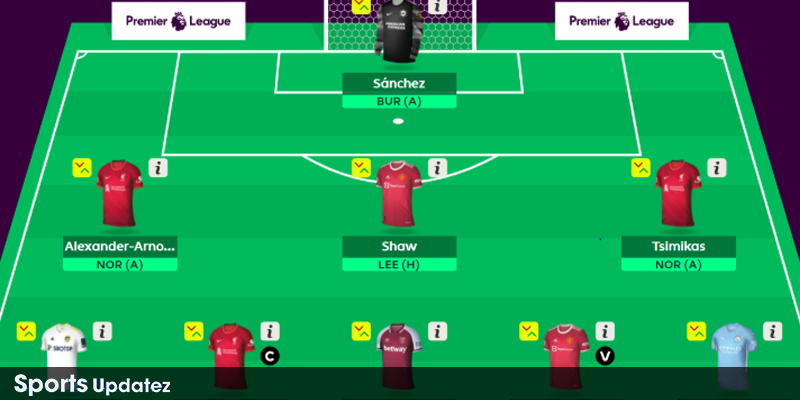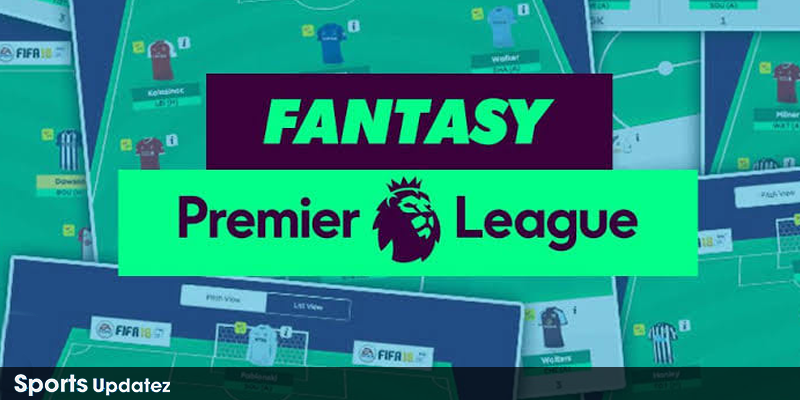Fantasy Premier League (FPL) is an online game of soccer where players build virtual teams made up of real Premier League players. Managers are awarded points based on players’ actual results in matches. Managers compete weekly with strategic thinking and transfers, aiming to be the best in the league and the world.
What is Fantasy Premier League?
Fantasy Premier League (FPL) is a game in which fans can pretend to be managers of their teams, part of their own fantasy Premier League. From that performance, fans of the English Premier League (EPL) must select a 15-man squad with £100 million at stake.

Earn points weekly on the numbers coming in from goals, assists, clean sheets, and much more. FPL, which has beyond 10 million players coming from all parts of the world, merges a love for football and the intellect of clear thinking, hence making it one of the most interesting fantasy games today.
Perfect Fantasy Premier League Names
A perfect Fantasy Premier League Names adds some zest to the identity of your team. Choosing Perfect FPL Names could lead your home to stand out in a mini-league. Use wordplay skillfully or use your favorite players to ensure your squad stands out, not only to enhance your personality but also to show your love for football.
- Botman Begins
- Ayew Joking
- Klopps And Robbers
- Absolutely Fabregas
- Back Of The Neto
- Come Digne With Me
- Deletubbies
- How I Met Your Mata
- Alisson Wonderland
- Ange Management
- Boom xhakalaka
- Cesc And The City
- Earth Wind Maguire
- Flying Without Ings
- Gangsters Allardyce
Tips for Choosing Fantasy Premier League Names
Mix football terminology or popular culture references with player names, for example: “Lallanas in Pajamas”.
Use a famous movie, TV show, or songs that refer to football, or any footballer that you happen to be a fan of.
You can include your name, hometown, or favourite club in the team name.
A funny or cheeky Fantasy Premier League team name may serve as entertainment for yourself and your foes.

Fantasy Premier League Price Changes: How They Work
Fantasy Premier League price changes rely primarily on transfer activity and performance trends. The value of a player can be affected by the number of other FPL managers who transfer him in or out. Understanding the price changes serves good in managing the effective team performance and utilization of the budget.
How Price Changes Work ?
When a player is bought by many managers during a defined time, mostly daily, his price increases. This indicates the rising demand and value expected for such a layer.
Selling a player by many managers results in price depreciation. This could mean inadequate form, injury, or rotation risk.
Price changes are effected daily, usually midnight UK time, based on all transfers on the previous day.
Tips to Manage Price Changes in Fantasy Premier League
FPL Statistics or Fantasy Football Fix lets you check expected price rises and falls.
Transfer may be as early in the week as the latter part to catch rising assets before they increase in price.
Be careful with early transfers; injury news can come up midweek and affect players.
Fantasy Premier League Wildcard
The Fantasy Premier League Wildcard is arguably the strongest chip FPL offers. With a Fantasy Premier League Wildcard, you can make unlimited transfers in a game week without incurring any point deductions. Managers receive two Wildcards per season, one for each half of the campaign.
When You Get Them ?
The Fantasy Premier League season gives players two Wildcard chips. The Initial Wildcard can be used between Gameweek 1 and Gameweek 20 and unlimited transfers can be made without losing any points in the first half of the season. The second Wildcard will be enabled in Gameweek 21 up to the last contests of the season, and this gives another chance of a full restructuring of the squad. The timing will allow managers to be strategic in adjusting their teams to various stages of the campaign.
When is the Best Time to Play Your Wildcard in FPL?
Wildcard (Gameweeks 3 -5)
By using your Wildcard early, you can already anticipate changes of form, correct bad decisions made previously, and shore up a long-term team composition.
Mid-Season Wildcard (Gameweeks 15–19)
This is when the squad can do with a reshuffle when fixtures become too busy around the festive time; injuries and squad rotation usually influence player consistency.
Post-January Wildcard (Gameweeks 25–30)
Sweet after the transfer window will serve to set up a team for double gameweeks, blank gameweeks, and swings in fixtures favorable for late-season.
End-of-Season Wildcard (Gameweeks 33–36)
Ideal for attempting to make up in the leagues, filling the Bench with players with favorable fixtures, and a decent Bench Boost.

Wildcard Tips
Wait till Friday or Saturday to make your final selection of your team so that you will have the updated information on injuries.
Take advantage of fixture difficulty tools to long-term planning.
Use the wildcard in conjunction with other chips (such as Bench Boost) to best effect.
Other Chips and Strategic Tools
1. Bench Boost
The chip activates all 15 players in the game and counts for points, including your bench. This is highly effective in double gameweeks or when all your players have been handed a favorable fixture.
2. Free Hit
Take advantage of Free Hit and carry out a large-scale remodel of your team. Particularly helpful during blank gameweeks, or getting the potential of doubled gameweeks without having to commit to it.
Conclusion
Fantasy Premier League allows one to combine the fun of football and team management. With the knowledge and application of features, including team names, price changes, wildcards, and chips, such as Bench Boost and Free Hit, managers are more able to gamify and challenge each other, which makes the whole Premier League season really interesting.
